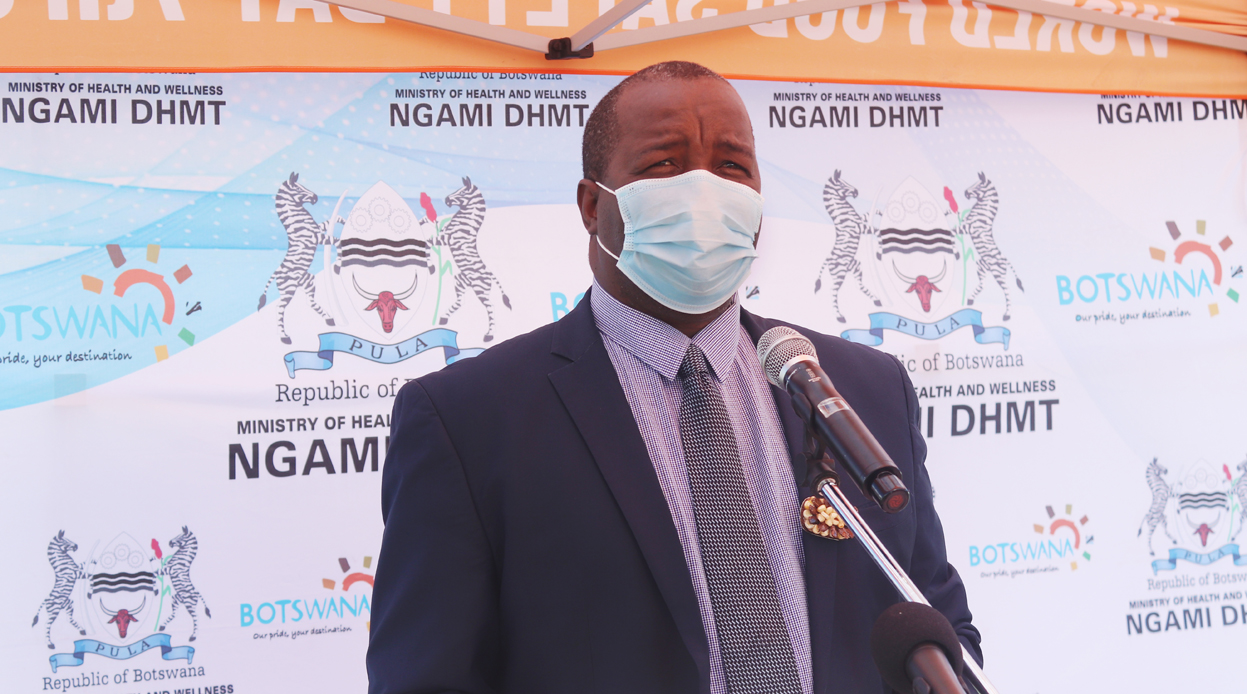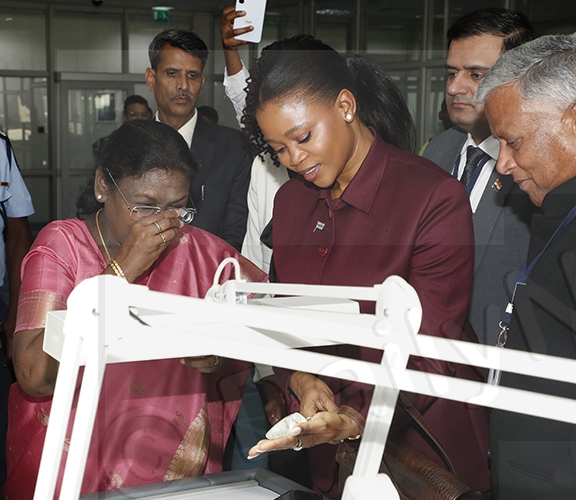International partners call for action
08 Jun 2022
Department of Veterinary Services has been hailed for playing a key role in food safety in accordance with international standards of the World Organization for Animal Health (WOAH).
WOAH regional representative for Southern Africa, Dr Moetapele Letshwenyo acknowledged the department when presenting on the importance of animal health and impact on food safety during the commemoration of World Food Safety Day in Maun on Tuesday.
He appreciated the department for helping to reduce risks to animal and public health by conducting on-farm and places of processing checks. Dr Letshwenyo said they carry out ante-mortem and post-mortem inspections to verify the health of the animals and the wholesomeness of their products, in accordance with international standards in slaughterhouses.
He said many food risks could be prevented by using international standards and good practices recommended by WOAH.
Many food risks, he said arose at the pre-slaughter or pre-processing stage. Dr Letshwenyo said international standards and guidelines on animal production had a focus on establishing linkages between food production, processing and the distribution phases often described as ‘from farm to fork’.
He said WOAH was actively evaluating and strengthening the quality of national veterinary services in their capacity as guarantors of food safety and veterinary public health.
Where possible, member countries were encouraged to adapt these standards into national legislations and in the requirements of safe trade in animals and their products, he added.
Dr Letshwenyo said animal products constituted one of the main components of a human diet, particularly in Botswana, where farming animals is part of the culture.
He said that one of the major threats to animal production across the globe were diseases, noting that animals were constantly exposed to disease pathogens, some of which can be shared between animals and humans.
Similarly, animal products, including those derived from healthy animals, were constantly under threat of contamination from potential hazards arising prior to the slaughter of animals or during primary processing such as meat, milk and eggs, he said.
“These foodborne hazards can be biological such as bacteria (salmonella), parasites, viruses or toxins, or they can be of a chemical nature, such as veterinary drug residues and dioxins or environmental pollutants, such as heavy metals,” he said.
He said all these ultimately led to ‘unsafe food’ for humans and compromised achievement of the Sustainable Development Goals, especially Goal 3, on good health and wellbeing.
Dr Letshwenyo said controlling pathogens at their source in animals on the farm, through the entire value chain, was the best approach to protect human health.
Food and Agricultural Organization (FAO) representative in Botswana, Dr Rene Czudek revealed that FAO and World Health Organization WHO through the Codex Alimentarius Commission have clearly set out international food standards to be observed to promote good nutrition and good health.
The standards, he said were meant to protect the health of consumers, ensure fair practices in food trade, as well as to provide capacity-building for countries to improve their food control systems.
Dr Czudek said helping to eliminate hunger, food insecurity and malnutrition through improved food safety was one of the key objectives of FAO in Africa.
He said this was achieved through FAO’s Strategic Framework to support the 2030 Agenda through the transformation to more efficient, inclusive, resilient and sustainable agri-food systems for better production, better nutrition, a better environment, and a better life, leaving no one behind.
Under the better nutrition component, He noted that FAO worked closely with member countries and other partners to promote new and revised international standards for food safety and quality.
In Botswana, FAO had made strides in strengthening food safety systems since 2009, through collaboration with various government and non-governmental agencies, including consumers, he said.
He said FAO had also supported the government with the development of National Food Based Dietary Guidelines, which should be launched this year. The guidelines also emphasise the consumption of safe, quality and nutritious food, he added. BOPA
Source : BOPA
Author : Esther Mmolai
Location : MAUN
Event : World Food Safety Day
Date : 08 Jun 2022






